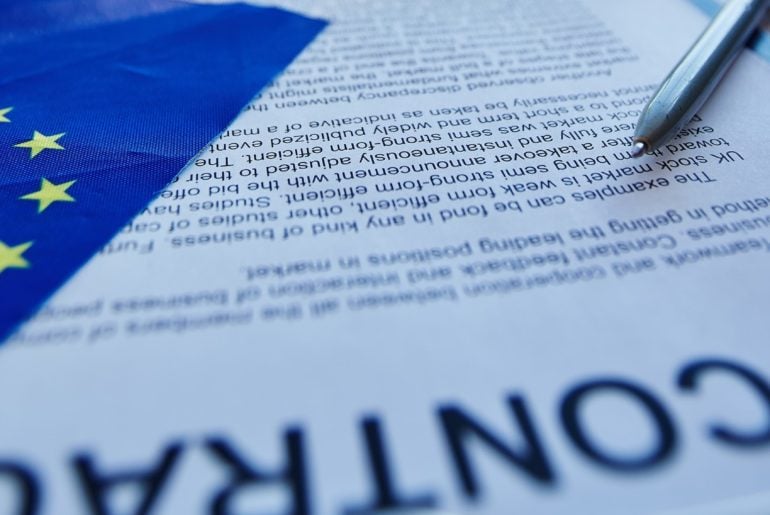Copyright 2024 International Association of Privacy Professionals. Data minimization: An increasingly global concept. Data minimization requirements are not new but they are becoming more common, and enforcement is on the rise. “Legal basis” requirements for data processing, justifying data processing activities and transfers, and adhering to data minimization principles began hitting organizations’ radars with the EU General Data Protection Regulation. In response to the GDPR, many multinationals are differentiating regionally, or by jurisdiction, how they…
According to Article 40.1 of the GDPR, the national supervisory authorities in the European Economic Area shall “encourage the drawing up of codes of conduct intended to contribute to the proper application” of the GDPR. A prerequisite for codes of conduct to be prepared by Swedish associations and bodies, which represent categories of personal data controllers or processors, is that the Swedish Data Protection Authority (IMY), pursuant to Art. 41 GDPR, establishes the requirements that…
Most important changes and translation Background and translation At its meeting on 31 August 2022, the Swiss Federal Council adopted the revised Data Protection Ordinance (nDPO), which contains the implementing provisions of the revised Data Protection Act (nDPA). A translated version of the nDPO in English can be found here. The federal council confirmed that the nDPA and the nDPO will enter into force as expected on 1 September 2023. Overall, the revised Swiss data…
The UK data protection framework is set to change. These changes will be relevant for organisations in the UK as well as organisations outside of the UK that offer goods or services to data subjects in the UK or monitor their behaviour. From a practical perspective many of the proposed changes are focused on reducing certain obligations, particularly record keeping obligations such as records of processing or data protection impact assessments. However, it is important…
If you search for the word “innovation” in the GDPR you might be disappointed. Indeed, you will find no occurrence at all. In our current digital world, this is akin to an elephant in the room. Everybody sees that innovation is the driver of new services, a differentiator that ultimately has consequences on the growth of an economy. Everybody knows that most of the digital innovation relies on intense data processing. However, the most important…
The new standard contractual clauses for data transfers to third countries (“Ex-EU SCCs”) and standard contractual clauses for controllers and processors in the EU/EEA (“Intra-EU SCCs”) issued by the European Commission provide for, both, chances and challenges for EU service providers supporting EU and non-EU customers, some of which are outlined below. 1. When do the Ex-EU SCCs apply? EU service providers supporting non-EU customers might want to enter into the new Ex-EU SCCs with…
The European Commission (“EC”) recently issued a set of standard contractual clauses for controllers and processors in the EU/EEA (“Intra-EU SCCs”). The Intra-EU SCCs accompany a wider set of clauses issued for extra-EU/EEA personal data transfers (“Extra-EU SCCs”), covering transfers between different types of data processing actors (processors, controllers, sub-processors etc.). Both of them were published in the Official Journal of the European Union on June 7, 2021. The clauses for intra-EU data processing arrangements…
The European Commission (“EC”) recently issued its revised standard contractual clauses for data transfers to third countries (“Ex-EU SCCs”) and a companion set of standard clauses for controllers and processors in the EU/EEA (“Intra-EU SCCs”). Both are now published in the Official Journal. The following is an introduction to the core elements of the Ex-EU SCCs and a brief overview of the Intra-EU SCCs. Legal Context The Ex-EU SCCs are a mechanism that companies can…
The 25 May 2021 marks the third anniversary of the GDPR coming into force. As we have moved from preparation for the GDPR to business as usual compliance with the GDPR, regulators have focused on various issues in different jurisdictions. Although we are now three years into compliance with the GDPR being part of our day to day operations, it is clear that interpretation and expectations regarding compliance from the courts and regulators continue to…
The UK data protection regulator, the Information Commissioner’s Office, has issued a monetary penalty to £20m on British Airways in connection with a cyber-attack which took place in 2018. In the ICO’s view there was a failure to process personal data in a manner that ensured appropriate security, as required under Articles 5(1)(f) and Articles 32 of the GDPR. The incident commenced with a “supply chain attack” where BA’s network was accessed by an attacker…







